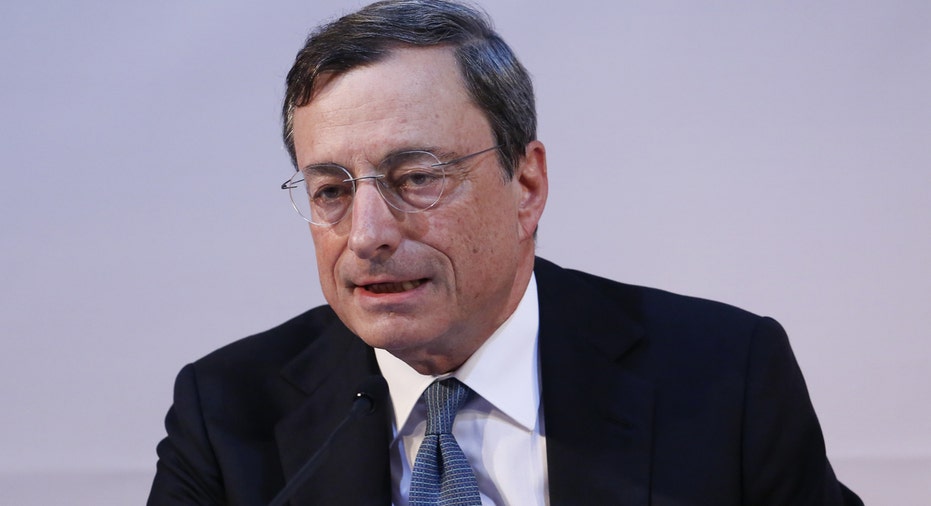ECB's Draghi Sets December for Stimulus Review

European Central Bank President Mario Draghi sent a stronger signal Thursday that the bank is prepared to expand its already massive bond-buying program, saying policy makers will make a fresh judgment on whether they are providing enough stimulus when they next meet in December.
In a news conference, Mr. Draghi stressed the "downside risks" to both economic growth and inflation arising from slowing growth in China and other large developing economies, as well as weak commodity prices.
He said the ECB's governing council would review its stimulus programs at its final meeting of the year, when the central bank's economists will provide new forecasts for growth and inflation.
"The degree of monetary policy accommodation will need to be re-examined at our December policy meeting when the new...projections will be available," he said.
Mr. Draghi also signaled the central bank's readiness to do more to boost growth and inflation by noting that the "relevant committees" had been tasked with examining the options that will be available to policy makers in December.
During their meetings in Malta on Thursday, policy makers had "a very rich discussion about all the monetary policy instruments that could be used," Mr. Draghi said, before adding that they hadn't decided which they might employ "yet."
"It was not a wait-and-see, but it was a work-and-assess," Mr. Draghi said of the spirit of the gathering. "We are ready to act if needed, we are open to a whole menu of monetary policy instruments."
Mr. Draghi said that menu of options includes further cuts in some of the central bank's key interest rates, including the deposit rate which is already negative, meaning banks pay to park excess deposits at the central bank.
Earlier Thursday, the ECB said it had decided to leave its main refinancing rate, the rate that it charges on regular loans to banks, at a record low of 0.05%, where it has been for over a year. The rate on overnight deposits also remained at minus 0.2%.
While there are some indications that the ECB's bond-buying program has helped spawn lending to the economy, it has done next to nothing to lift inflation in the eurozone. The most recent data show consumer prices in September were 0.1% below the level of one year ago, far off the ECB's medium-term target for the inflation rate of just below 2%.
Central bankers worry that an environment of falling prices will induce consumers to put off purchases, waiting for prices to sink further and ultimately leading to cuts in wages and a shrinking economy. Deflation also weighs on borrowers by raising the cost of money in real terms.
For deflation to take hold, consumers and businesses would have to expect price falls to continue. Central bankers are therefore anxious to persuade households that, whatever its current reading, the inflation rate will be around their target over the medium term, in which case they describe inflation expectations as being "anchored."
But Mr. Draghi warned of a possible "de-anchoring" of expectations if the inflation rate remains low for a long time, and particularly if oil prices fall further.
"These risks have gone up and we want to be vigilant," he said.
Some of Mr. Draghi's colleagues have appeared reluctant to expand the quantitative easing program so soon after its launch, with a number of national central bank heads--who sit on the ECB's governing council--recently expressing a preference for waiting until the continuing purchases of government bonds have taken full effect.
Meanwhile, the euro has appreciated over recent months as traders and investors have become less convinced that the U.S. Federal Reserve will raise short-term interest rates this year. The ECB had expected a weaker euro to boost eurozone exports and raise prices of imported goods and services, thereby helping policy makers meet their inflation target.
Mr. Draghi said the euro's appreciation over the last four months was one of a number developments threatening to weaken growth and inflation.
Write to Paul Hannon at paul.hannon@wsj.com and Todd Buell at todd.buell@wsj.com



















